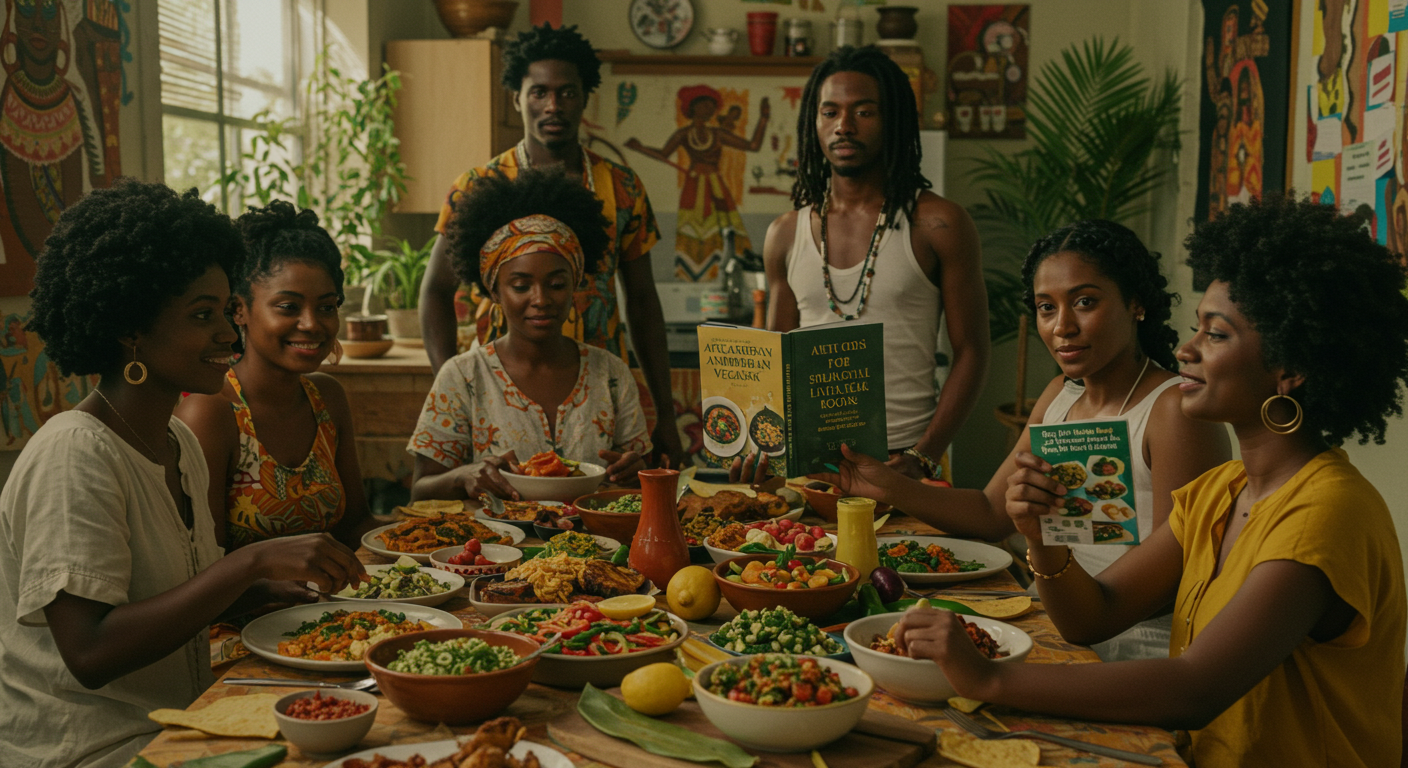Veganism is often portrayed as a Western phenomenon, but its roots run deep in African and Afro-Caribbean traditions. Long before plant-based lifestyles became popular hashtags, African and Caribbean communities practiced spiritual, ethical, and health-driven abstention from animal products. Today, Afro-Caribbean veganism is not just about diet—it’s a cultural and spiritual movement that reclaims ancestral wisdom while addressing modern issues like chronic illness, food injustice, and environmental degradation.
In Rastafarianism, the Ital diet stands as a prime example of spiritually grounded veganism. Ital, derived from the word “vital,” is a way of eating that avoids processed food, salt, alcohol, and meat. The goal is to maintain a pure body that is more in tune with the divine. Rastafarians view the body as a temple and believe that consuming food in its natural state enhances spiritual awareness and life force. This tradition is not just a diet; it’s a spiritual code of living.
Ital meals often include fresh fruits, steamed or raw vegetables, legumes, grains like bulgur or brown rice, and plenty of herbs. Coconut milk, callaloo, breadfruit, and plantains are staples. Dishes like ital stew, ackee (without saltfish), or lentil patties are rich, flavorful, and deeply nourishing. Many Rastafarians also grow their own food, further reinforcing the connection between land, health, and spirit.
In African spiritual systems, such as Yoruba Ifá or Akan cosmology, food is central to ritual and wellness. Some rituals and periods of purification call for abstinence from meat or dairy, promoting a temporarily vegan lifestyle. Offerings to deities or ancestors are often plant-based—like kola nuts, fruits, or grains—symbolizing humility, balance, and purity.
From a cultural standpoint, many Caribbean dishes are already naturally vegan or can be easily adapted. Callaloo soup, coconut rundown with vegetables, or green banana salad are deeply traditional and entirely plant-based. African heritage grains like millet, teff, and sorghum also lend themselves well to modern vegan recipes. The vibrant spice palettes—turmeric, ginger, allspice, pimento—transform simple ingredients into satisfying feasts.
Afro-Caribbean veganism also addresses public health. Communities of African descent often face higher rates of hypertension, diabetes, and heart disease—conditions that are heavily influenced by diet. Transitioning to plant-based meals, rooted in tradition, can be a form of resistance and self-care.
Moreover, this movement intersects with social justice. Many Afro-Caribbean vegans highlight food apartheid—the lack of access to fresh, healthy food in Black communities. Vegan pop-ups, community gardens, and plant-based advocacy in cities like Kingston, Port of Spain, Brooklyn, and Brixton are creating grassroots change.
Social media and cookbooks have helped mainstream Afro-Caribbean veganism. Influencers and chefs like Tabitha Brown, Bryant Terry, and Haile Thomas are blending storytelling with advocacy, demonstrating that veganism can be culturally rich, historically rooted, and deeply personal.
To embrace Afro-Caribbean veganism, start with:
- Replacing meat with beans, lentils, or mushrooms in traditional recipes.
- Using coconut milk, cashew cream, or mashed plantains for creamy textures.
- Exploring local markets for root vegetables, tropical fruits, and indigenous herbs.
- Preparing spiritual meals during rituals or ancestral honoring.
- Supporting Black-owned vegan brands or eateries.
Afro-Caribbean veganism is not about deprivation—it’s about abundance, healing, and liberation. By connecting to ancestral foodways, this lifestyle nourishes not just the body but also the soul and community. It reclaims a legacy of health, spirituality, and cultural pride through the power of plants.



